Over two and a half years since the collapse of the devolved government in Stormont, Secretary of State for Northern Ireland Karen Bradley speaks to IrishCentral about devolution, the power of the Belfast/Good Friday Agreement and the unique challenges faced in Northern Ireland.
People recognizing that there is somewhere where politics made such a fundamental change to people's lives and that politics overcame something so destructive can never be forgotten.
- Secretary of State for Northern Ireland, Karen Bradley
Amid the Brexit furor, incessant coverage of the backstop agreement and the danger of the unwavering stalemate over the future of the Northern Ireland border, it can be forgotten by many in America and even within Ireland, that Northern Ireland has now endured over two and a half years without government in Stormont.
With current talks attempting to restore the devolved government to Northern Ireland now in its eleventh week, the United Kingdom's Secretary of State to Northern Ireland Karen Bradley has hoped to guide parties toward an agreement.
IrishCentral met with Bradley on a recent trip to the US, just hours after the United Kingdom's Ambassador to the US had resigned over leaked email comments made about President Donald Trump and a day after she abstained from voting on bill amendments that saw Westminister taking action on the generally devolved issues of same-sex marriage and abortion rights.
Following last week's vote, Northern Ireland is set to begin legalizing both same-sex marriage and abortion if a new government is not installed in NI by October 21.
The matters of same-sex marriage and abortion were deemed to be a “devolved matter” in British Parliament, meaning it should be left up to Northern Ireland’s Assembly to decide. However, with no Assembly in place for more than two years, backbench members of the British Labour party argued that the two issues can no longer be ignored.
"I didn't actually vote on them, I abstained," Bradley told IrishCentral, explaining that with this bill "we're taking a piece of legislation through Parliament, which none of us want to be doing, but it is to make sure that decisions can continue to be made in Northern Ireland come the end of August, if we haven't been able to get an executive formed by then, and my absolute priority is getting an executive formed.
Read more: Brexit Britain be warned - ignore the Irish at your peril
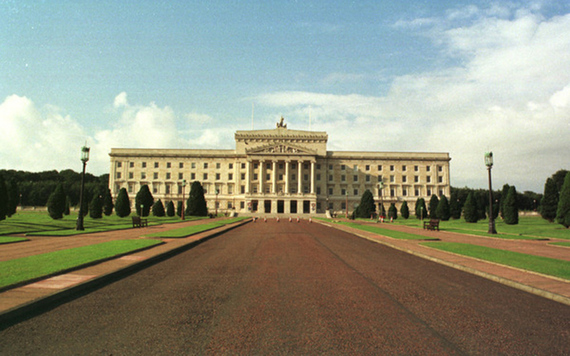
Stormont.
"All of these are devolved matters, matters which are the responsibility of ministers in Northern Ireland and the Northern Ireland civil service," the SoS added.
"I abstained because whatever my personal views on these matters, I think that it's not for Parliament to make a decision ... it should be done in Stormont."
The Northern Ireland government collapsed in January 2017 over a renewable heating scandal. Democratic Unionist Party (DUP) leader and then Northern Ireland First Minister Arlene Foster, who had been in charge of the department that oversaw the plan in question, did not stand down while an investigation was carried out and a bitter row erupted between the DUP and Sinn Féin.
In the following two years, the rift between the two largest parties, who are on either side of the nationalist/unionist divide, has constantly come to a stalemate in talks to resume government, as the issues in question widened to include other traditional disputes such as the rights afforded the Irish language and its speakers in the state.
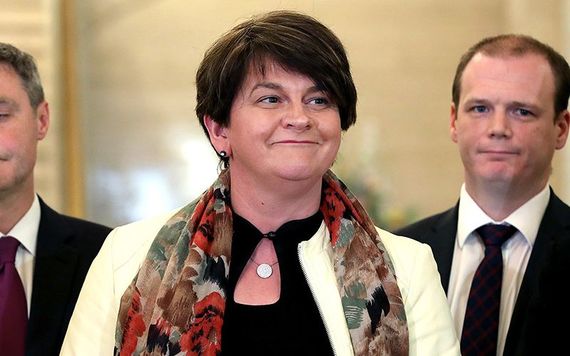
DUP leader Arlene Foster.
Bradley herself was not in the role of Secretary of State at the time of the collapse, only being elected to the position by outgoing British Prime Minister Theresa May a year later in January 2018.
The Conservative Party MP has faced her fair share of criticism in her 18 months as Secretary for State, however, with some questioning her ability to lead talks in Northern Ireland and others criticizing what they feel is a delayed response on Historical Institutional Abuse.
The Northern Ireland Historical Institutional Abuse Inquiry (HIA) is the largest inquiry into historical institutional sexual and physical abuse of children in UK legal history. Despite the inquiry recommending that a compensation scheme be put in place for victims, the collapse of the NI government has seen no action yet taken.
"This is about how do you build a scheme that works, doesn't get challenged and delivers for the victims as quickly as possible," Bradley argues.
"And sometimes that needs work upfront, which I know is frustrating because people want action now. But actually, you've got to do the legal work upfront because if you don't, and you just introduce a scheme that doesn't work legally, victims might not get the redress they need."
The question of the HIA Inquiry and how to proceed is just one of the major challenges presented to the Northern Ireland parties as they come together once more to attempt a resolve and strive toward reinstalling government.
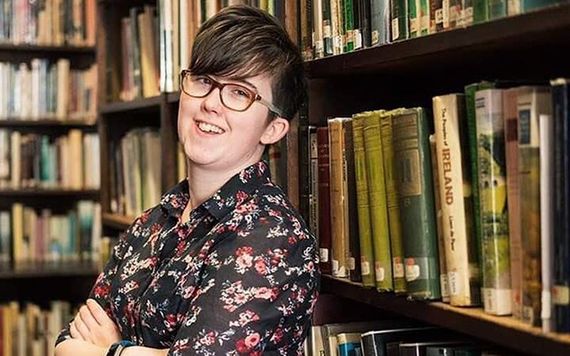
Murdered journalist Lyra McKee. Image: Getty.
While Bradley stated that "it wouldn't be right for me to put a statistical probability ... on [current] talks" she did stress the drive felt behind this particular round of peacemaking, which evolved from the tragic death of young journalist Lyra McKee in April.
"We'd always intended we would have talks after the local elections but there was this added impetus when the appalling killing of Lyra McKee happened," she explained.
"We saw politicians come together and go into the Creggan [a nationalist housing estate in Derry] together - clearly politicians who'd never been there - and we saw them welcomed by the community but also that really strong voice saying we want you to take action.
"And the politicians heard that and I hope that they will reflect when we're in the talks - when there are really intense discussions going on and it's very easy to get drawn into detail - to remember that bigger picture: that there are people in Northern Ireland who need to see their politicians, who they elected and who they've put their trust in, to do the right thing for them."
Read more: British Army killings during The Troubles "were not crimes," says Britain's NI secretary
The consensus on urgency after McKee's death, however, does not make the ability to find consensus on other issues any easier, she admits:
"These are big differences and we need to bridge the gap. It may not be possible to bridge that gap but we need to try and do everything we can to get to a point where we have a balanced package, that all parties can buy into a part of the executive.
"We've done an incredible amount of work. There have been over 150 meetings; some were roundtable meetings that have been chaired by current and former civil servants or senior civil servants on things like a program for government; concern on the sustainability of executive; rights, language, and identity; and transparency in governance arrangements.
"These are really important things so we've had really constructive and productive discussions. We know now where there's consensus, what we've got to do is find out if we can bridge the gap on where there isn't consensus and as nothing's agreed until everything's agreed, at the moment, nothing is agreed.
"But we are working really, really hard."
Bradley also admits that the unique problems faced in Northern Ireland makes it a much larger challenge than any general MP's constituency, citing the land border with the Republic and all the issues that brings, as well as the fact that there are constituencies in Northern Ireland that have no representation in Westminister as a result of Sinn Féin's abstentionist policy. MPs elected to Westminister for the party do no take their seats as they refuse to recognize the British authority in Northern Ireland.
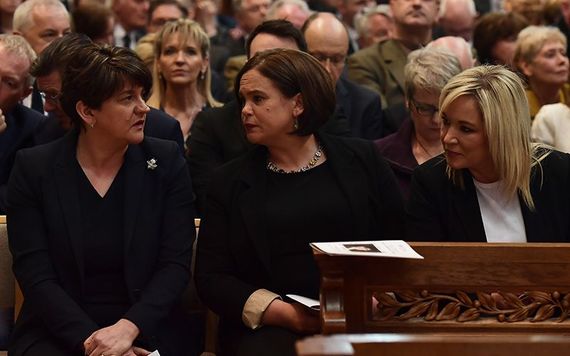
DUP leader Arlene Foster and Sinn Féin leaders Mary Lou McDonald and Michelle O'Neill at Lyra McKee's funeral. Image: Getty.
"You don't hear the voices of those people in Westminster. You don't hear what their particular concerns are. That is a deficit," Bradley argued.
"I think Westminster's poorer for not hearing from the MPs that are elected in every constituency. That's a decision for those MPs. But I think it affects the way Westminster views things."
IrishCentral also questioned Bradley about a view held by some that Westminister still fails to 100% understand the issues in Northern Ireland and how Brexit will affect them.
"What I would say is that, from my point of view, I am there every day explaining this, talking about it," she countered.
"I have learned so much in the 18 months I've been doing the job. It's the most fantastic part of the United Kingdom. It's a wonderful, wonderful place with the most welcoming, friendly people.
"And I think the value with which the Belfast/Good Friday Agreement, the esteem in which it is held, cannot be underestimated. People recognizing that there is somewhere where politics made such a fundamental change to people's lives and that politics overcame something so destructive can never be forgotten."
In recent hustings in Northern Ireland between the two remaining candidates to replace Theresa May as Prime Minister, current British Foreign Secretary Jeremy Hunt claimed that he felt the next Prime Minister should take a more hands-on role in Northern Ireland, akin to Labor PM Tony Blair during the peace process.
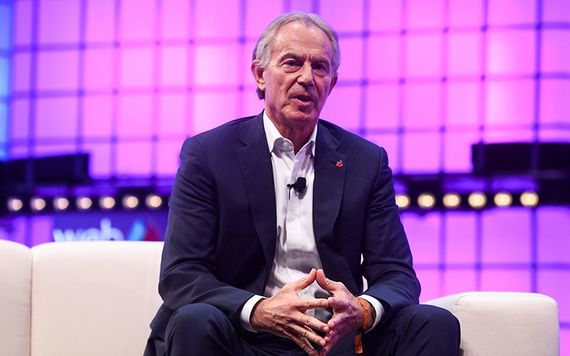
Former British PM Tony Blair. Image: Getty.
While backing the work of outgoing PM May, Bradley also argued that 2019 can in no way be compared to 1997/98.
"I have to be in parliament to vote, my predecessors didn't have to be quite so much, because of the way the parliamentary arithmetic worked," she explained, referring to Blair's ability to spend more time in NI.
"I think also you were facing different issues and a different situation. What we're facing today is the need for the politicians that were elected locally to do what the people who elected them want them to do and come together.
"But we've got some gaps and differences that we need to find a way to bridge. Now that isn't about going in and knocking heads together, that isn't about going in and imposing, that isn't about going into a room and making demands or conditions on people.
"It's about how you get people into a place where they feel they have got enough balance in a deal, that they can do a deal.
"There is nowhere else in the world where you expect politicians who are diametrically opposed on just about every issue to come together and form a government together," she later added.
Bradley lastly addressed calls from some sectors that the US should also become more involved, appointing a special envoy as they had with Senator George Mitchell in the 90s.
"I think I think the US is always involved in Northern Ireland the US has such a stake in the success of Northern Ireland," said Bradley.
"Clearly it will be for the US to make a decision if they want to have somebody there but I think also this isn't a quick and easy thing ... these are big issues that require real dedication and devotion."
Do you believe the US should send a special envoy to Northern Ireland to aid in re-establishing a devolved government in Stormont? Let us know your thoughts in the comments section, below.
Read more: Same-sex marriage, abortion set to be legal in North after Westminster vote
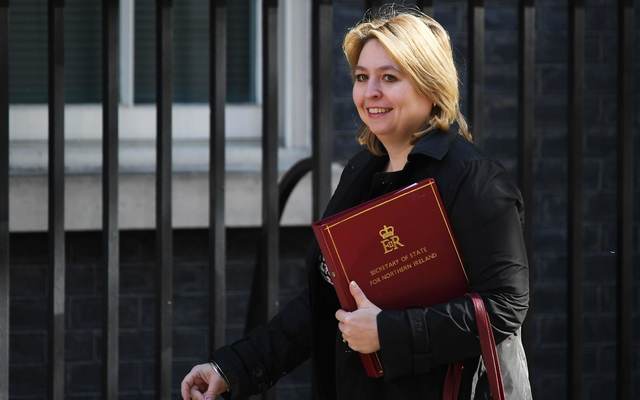



Comments